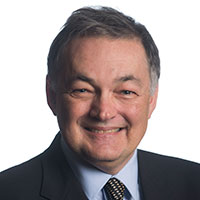As part of our ongoing seminar series, the Centre of Excellence in Severe Asthma hosted Prof. Guy Marks, for a webinar on “Thunderstorm Asthma” on 02 December, 2016.
Thunderstorm Asthma Event, Melbourne:
This webinar was hosted in response to the thunderstorm asthma event in Melbourne during the afternoon of 21st November 2016. This event tragically resulted in the loss of ten lives, determined by coronial investigation. On behalf of the Centre of Excellence in Severe Asthma we offer our sincere condolences to the families who lost loved ones.
Presentation Summary:
Thunderstorm asthma events lead to rapid spikes in severe asthma symptoms. They are associated with local thunderstorms, typically during high pollen seasons. Symptoms can lead to large numbers of emergency calls, hospital attendances and hospital admissions. As seen in Melbourne in December 2016, thunderstorm asthma can also be lethal.
Thunderstorm asthma events require high levels of allergens. Allergens are typically grass pollen but may also be mould or others. Under certain conditions, thunderstorm outflows form that spread allergen at ground level. Inhaled allergen causes symptoms in people who are allergic and have untreated airway hyperresponsiveness.
This seminar provides information on risk factors for thunderstorm asthma. Hay fever was strongly associated with thunderstorm asthma. A previous diagnosis of asthma and taking inhaled corticosteroid prevent medications may be protective. Staying indoors, with the windows closed, may also be protective.
Many questions remain, particularly around how thunderstorm asthma occurs, how events can be predicted and the best approaches for prevention and control.
An update on lessons learned from the Melbourne thunderstorm asthma event presented by Prof. Frank Thien is also available on our website here.
Key Points:
- Thunderstorm asthma events lead to a rapid spike in severe asthma symptoms associated with specific weather events
- A previous thunderstorm event in the small town of Wagga Wagga, NSW, Australia on 30/31 October 1997 resulted in 215 ED visits for asthma, 41 hospital admissions and 2 intubations
- A case control study was conducted of those attending emergency departments for asthma, to identify risk factors for thunderstorm asthma
- Hay fever was strongly associated with thunderstorm asthma
- Patients with recent wheeze, a diagnosis of asthma, sleep disturbance or on inhaled corticosteroid (ICS) treatment were less likely to be affected by thunderstorm asthma
- 1/3 of people with thunderstorm asthma had no previous diagnosis of asthma
- 96% of people with thunderstorm asthma were allergic to rye grass pollen
- Being outdoors, or indoors with windows open, during the beginning of the storm was associated with increased risk of asthma symptoms
- Thunderstorm asthma events occur when certain thunderstorm weather patterns occur during grass pollen season
- Large rye pollen grains rupture when exposed to moisture, releasing small pollen grains that can be inhaled into the lungs
- Thunderstorms can form outflows, associated with rapid changes in wind speed and direction and drops in air temperature
- Under these conditions, a rapid increase in pollen count occurs with increased numbers of ruptured pollen grains
- Arrival of thunderstorm outflows coincides with increased pollen count and the onset of severe asthma symptoms
- ED attendance data from 6 NSW hospitals between 1995-1998 identified a correlation between high numbers of asthma visits and thunderstorm outflow events
- This finding suggests that thunderstorm asthma events are more common than currently appreciated
- Health promotion campaigns were developed to take preventer medications during spring for people who “wheeze and sneeze”
- Health service alerts based on predicted thunderstorm outflow events included in a warning system
- Other thunderstorm asthma events associated with other triggers, such as grass pollens, moulds (e.g. Alternaria or Cladosporium) and soybean husks
- Thunderstorm asthma requires the following conditions: abundant allergen levels, thunderstorm outflow, formation of inhalable particles and exposure to allergen-sensitised people with untreated airway hyperresponsiveness
- Many questions remain about the weather conditions required, the mechanisms and how medications can protect from thunderstorm asthma symptoms
- More work is required to develop recommendations for what people can do to protect against severe asthma and how health services should prepare
- Health services approaches must respond to many varied hazards and response must be integrated on the national scale
More Information:
The final report from the Victoria Inspector-General for Emergency Management relating to this event is available here.
Several publications are also available for more information:
- Mark Hew et al. 2017. The Melbourne thunderstorm asthma event: can we avert another strike? Internal Medicine Journal
- Michael Woodhead. 2016. Hospitals overwhelmed with patients after “thunderstorm asthma” hits Melbourne. The British Medical Journal
- Francis Thien. 2017. Thunderstorm asthma: potential danger but a unique opportunity. Asia Pacific Allergy
Prof. Guy Marks (UNSW, Woolcock Institute of Medical Research, Liverpool Hospital) is a respiratory physician and respiratory and environmental epidemiologist. His research focuses on causes, risk factors and prevention of lung disease and monitoring disease burden and management practices.
He has pioneered work on measuring quality of life in people with asthma and described the importance of “thunderstorm asthma”.


